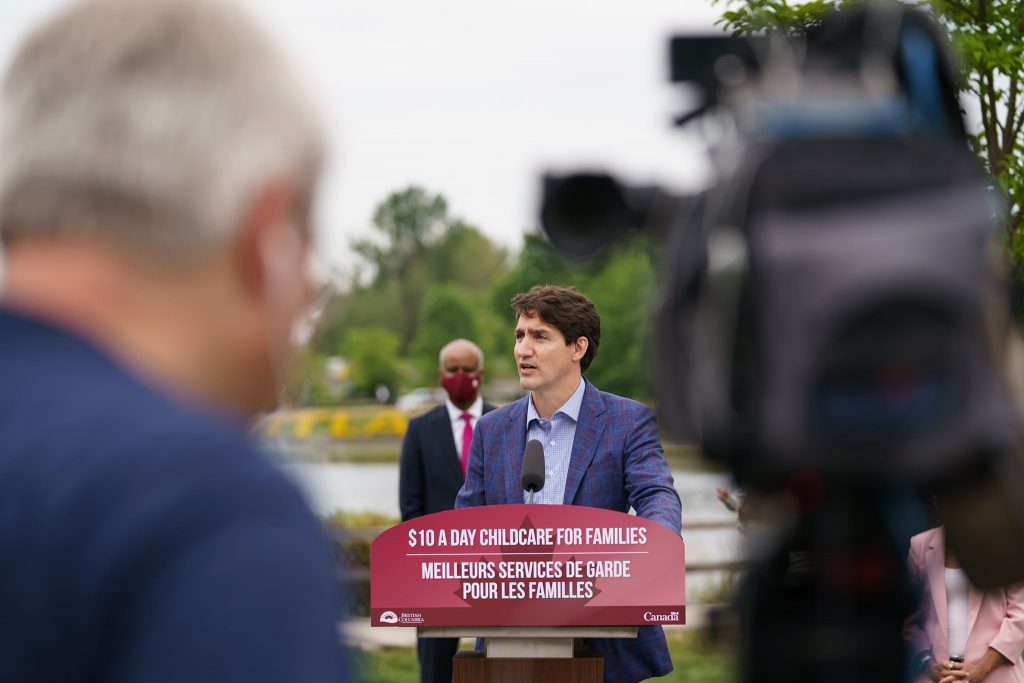Immigration
Trudeau unveils Canada’s new immigration system priorities
Sean Fraser and IRCC will be guided by the priorities outlined in the mandate letter.

Canada’s Prime Minister Justin Trudeau has just revealed the new mandate letters he has submitted to his cabinet.
In Canada, the Prime Minister issues mandate letters outlining the priorities they expect their ministers to pursue during the federal government’s time in power.
Each minister and their respective department then focuses on pursuing the priorities.
The mandate letter is the most important policy document that guides Canada’s immigration system. Canada’s new immigration minister, Sean Fraser, and Immigration, Refugees and Citizenship Canada (IRCC) will be tasked with implementing the agenda Trudeau outlined to them today.
This will not only impact federal immigration policies but provincial ones as well, given that the federal government plays the lead role in managing the country’s immigration system.
A summary of Canada’s new immigration priorities
The new immigration mandate letter reveals priorities such as:
- Application processing: Trudeau calls on Fraser to “Reduce application processing times, including to address delays that have been impacted by COVID-19.”
- Express Entry: Create more permanent residence pathways via Express Entry for international students and temporary foreign workers.
- Family reunification: Introduce electronic applications for family reunification and implementing a program to provide temporary residence to spouses and children abroad while they await the processing of their permanent residence applications.
- Create a new Municipal Nominee Program: The purpose of the MNP is to help promote a broader distribution of immigration across Canada. It was initially outlined as a priority following the 2019 election but has been delayed due to the pandemic. In addition, Fraser is to also ensure immigration better supports small- and medium-sized communities.
- Waiving Canadian citizenship application fees: This was also identified by Trudeau as a priority following the 2019 election but has been another deliverable delayed by the pandemic.
- Establish a Trusted Employer system: Fraser is being asked to work with the Employment Minister to establish a Trusted Employer system for Canadian companies hiring temporary foreign workers. In addition, he is being asked to improve the Global Talent Stream of the Temporary Foreign Worker Program (TFWP) by simplifying work permit renewals, upholding the two-week processing standard, and establishing an employer hotline.
- Undocumented workers: Build on existing pilot programs to identify how to regularize status for undocumented workers in Canada.
- Francophone immigration: Continue to work with Quebec to support French-language knowledge of immigrants in Quebec and also continue to promote the national Francophone immigration strategy.
- Afghan refugees: Fulfill Canada’s goal to resettle 40,000 Afghan refugees.
Liberals have increased immigration since 2015
Trudeau’s Liberal party was re-elected for a third consecutive term in September. Since assuming power in 2015, they have pursued a policy of aggressively higher immigration levels. This has entailed increasing immigration from some 300,000 arrivals per year to a current target of over 400,000 per year.
Following their victory, Trudeau unveiled his new cabinet in October. Fraser is a trained lawyer from Nova Scotia that was first elected to Parliament in 2015. He replaces Marco Mendicino who served as immigration minister since 2019, and who is now Minister of Public Safety.
According to an October 2021 meeting between IRCC and associations representing Canadian immigration lawyers and consultants, the department currently has three priorities in the short-run: achieving its 401,000 newcomer target for 2021, reuniting families, and bringing Afghan refugees to safety in Canada.
Now that a new mandate letter has been unveiled, we can expect IRCC to expand the scope of its priorities beginning in the coming months.





















